In the first chapter of the Fall Term, Fellows and students together address infrastructures of digital systems. The Fall Term is part of the FOUNDING LAB, a collaborative prototype of a new university.
After the Ars Electronica Festival served as a public platform for the FOUNDING LAB to present initial ideas and results from the Summer School and Forum, this very prototype of a new university is now entering Fall Term. The findings of the summer will be further explored here as part of a six-chapter seminar series. Here on the blog, we’ll take you through these individual chapters and share the ideas and projects that emerge.

Founding Themes:
- Infrastructure (04.-07.10)
- Data & Code (08.-11.10)
- Machines, Robots & Tangibles (22.-25.11)
- Interfaces & Visualizations (26.-29.11)
- Media (17.-20.01)
- Digital Society & Society (21.-24.01)
What is the FOUNDING LAB Fall Term?
Prototyping the visions for a new university, the Fall Term considers the shared ideas developed during this year’s FOUNDING LAB Summer School and Forum. Project-based learning, interdisciplinarity and transcultural matchmaking, art as a catalyst and communication method, as well as on-site and remote mentoring and guidance are pillars that make up the basis of the FOUNDING LAB Fall Term. The Fall Term is structured in six chapters that approach different aspects of digital transformation from very distinct angles. Each chapter is hosted by three international Fellows who develop the program around the Founding Theme. Coming from many different disciplines, they not only bring in unique perspectives, but also form a living example for designing interdisciplinary work environments. During the Fall Term, each student imagines, plans, and realizes their own scientific-artistic project. The chapters serve as a kind of buffet, providing students with a large variety of inputs for their project development. The final presentation of the projects will take place at the end of the last chapter on January 25, 2024.
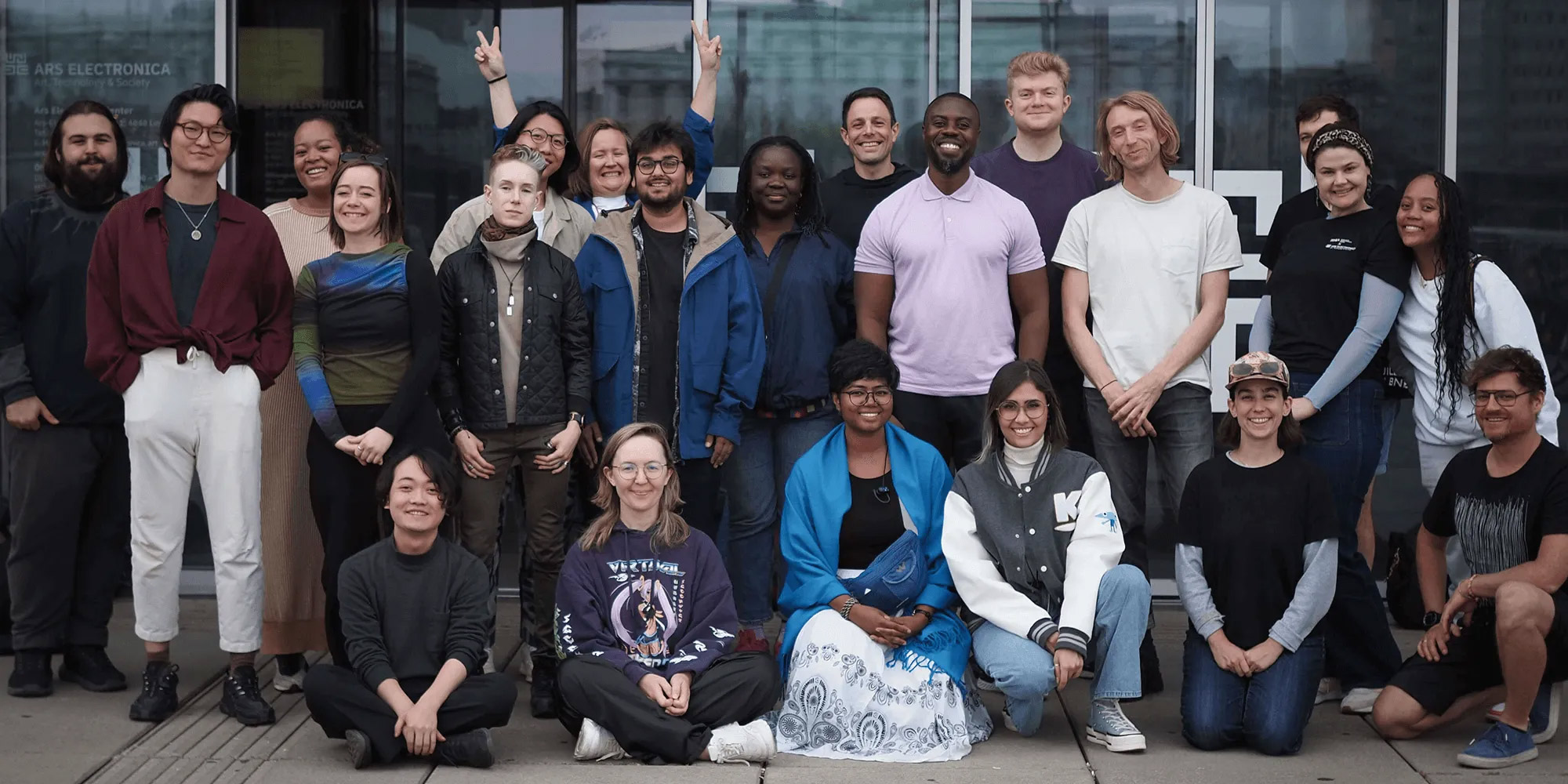
How is the FOUNDING LAB Fall Term structured?
Each of the three chapter blocks will be introduced by an online session beforehand called Zoom In Call. Using the Art Thinking practice, a concept developed by the Futurelab, this online exchange format provides the students with a common knowledge base and opens up vivid discussions around the upcoming founding themes. The goal is to develop a joint compass and a landscape of questions that lead the students into the chapters’ topics. During the chapter block in Linz on site, interesting lectures, intensive workshops, discussions on eye-level, informal exchange, interactive work sessions, and experimental prototyping take place. Each chapter block is followed by an online Zoom Out Call that, based on the students’ experiences and learnings during the chapters on site, guides students and fellows through a meta process that resets the initial compass. By further reflecting on knowledge, skill sets, and strategies they have been exploring during the chapters, the founding themes are contextualized within the bigger picture of the Fall Term program as well as the greater visions for the pioneering university. Between the three chapter blocks, the students focus on the development of their semester projects. In peer groups, they collaboratively support each others’ process and benefit from the cross-disciplinary exchange. Not only are they supported by the Facilitators and the Ars Electronica Futurelab, also the Fellows advice and guide the project development. During online Deep Dive talks external lectures like experts, innovators, leaders, scientists, philosophers and artists provide further insight in the diverse fields of interests the students work on in their projects.
Chapter 1: Birth, Life and Death of Infrastructure with Gerhard Grimm, Darsha Hannah Hewitt and Vladan Joler
Chapter 1 of the FOUNDING LAB Fall Term, led by fellows Gerhard Grimm, Darsha Hannah Hewitt, and Vladan Joler, explores the birth, life, and death of infrastructure. It tackles digital systems, colonialist implications, and sustainable solutions for technology.
“Infrastructures are material forms that allow for the possibility of exchange over space. They are the physical networks through which goods, ideas, waste, power, people, and finance are trafficked.”Larkin (2013)The Politics and Poetics of Infrastructure
The first chapter of the FOUNDING LAB Fall Term is a dynamic exploration led by fellows Gerhard Grimm, Darsha Hannah Hewitt, and Vladan Joler. This chapter, titled “Birth, Life, and Death of Infrastructure,” covers essential components of digital systems, delve into colonialist implications within technical infrastructure, and propose ethical and sustainable solutions for digital technology. Vladan Joler, a professor at the Art Academy of the University of Novi Sad and founder of the SHARE Foundation initiated discussions about Surveillance Architecture and globabl Internet traffic routing by referring to “Counter Cartography,” emphasizing the importance of understanding infrastructure’s inner workings. The conversation revealed that Joler’s definition of infrastructure starts with the periodic table of elements and then builds up to the largest entities imaginable. The workshop explored the centralization of humanity through technology, underscoring the social aspects tied to it. Next, a fascinating excursion to Deep Space 8K at the Ars Electronica Center, guided by Otto Naderer, Facilitator and Key Researcher at Futurelab and Gerhard Grimm, Fellow and Sr. Director Analyst at Gartner unveiled the complexities of hardware, supply chains, and innovative technology. Participants delved into the concept of Deep Space’s hardware lifecycle, intricate supply chain structures, and the technology that powers this cutting-edge environment. They learned about the main image generation cluster, handling massive resolutions and the challenges of orchestrating a plethora of various devices from a mobile interface. The journey continued to explore game engines, the weight of hardware, and content management systems.
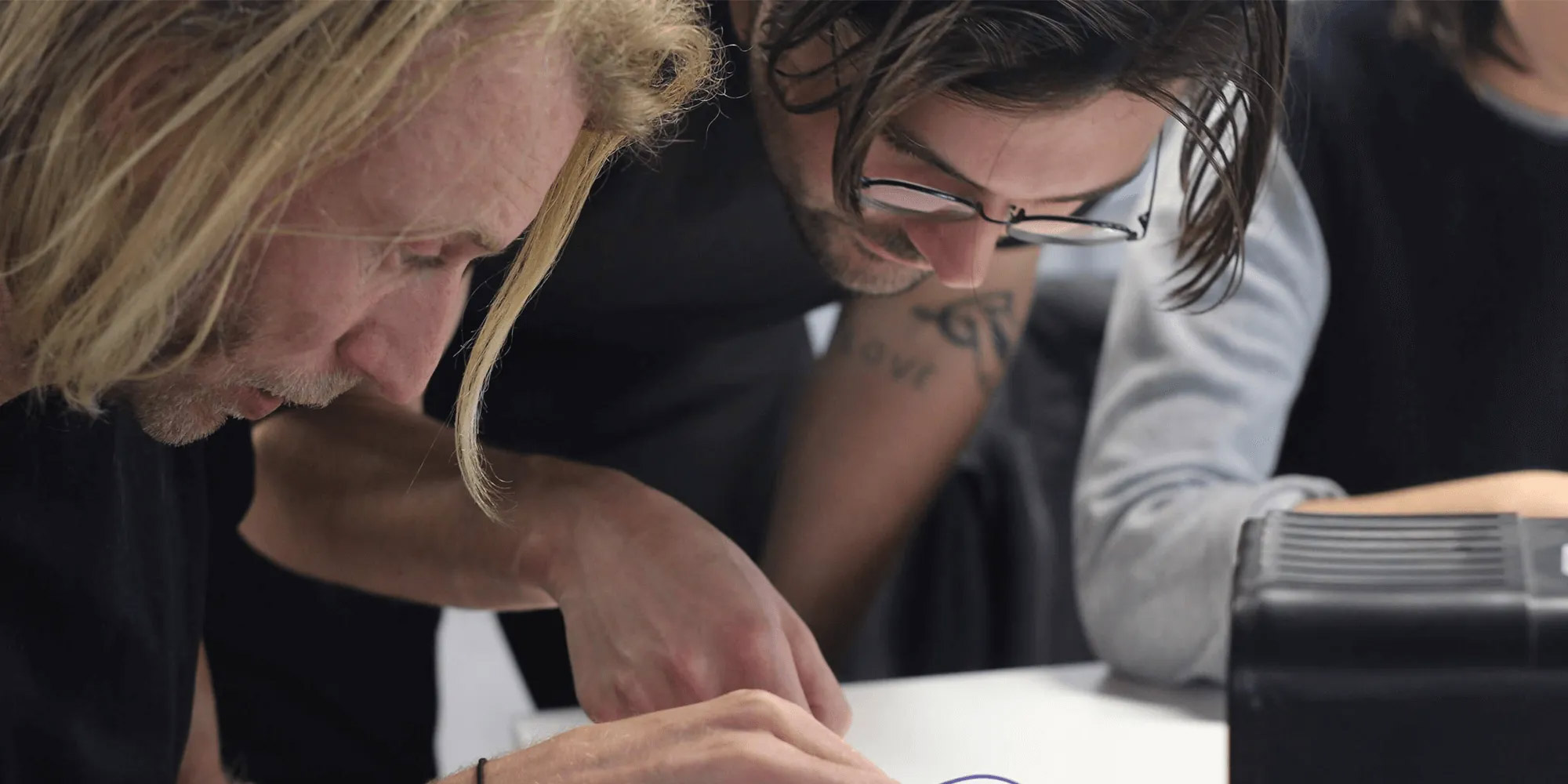

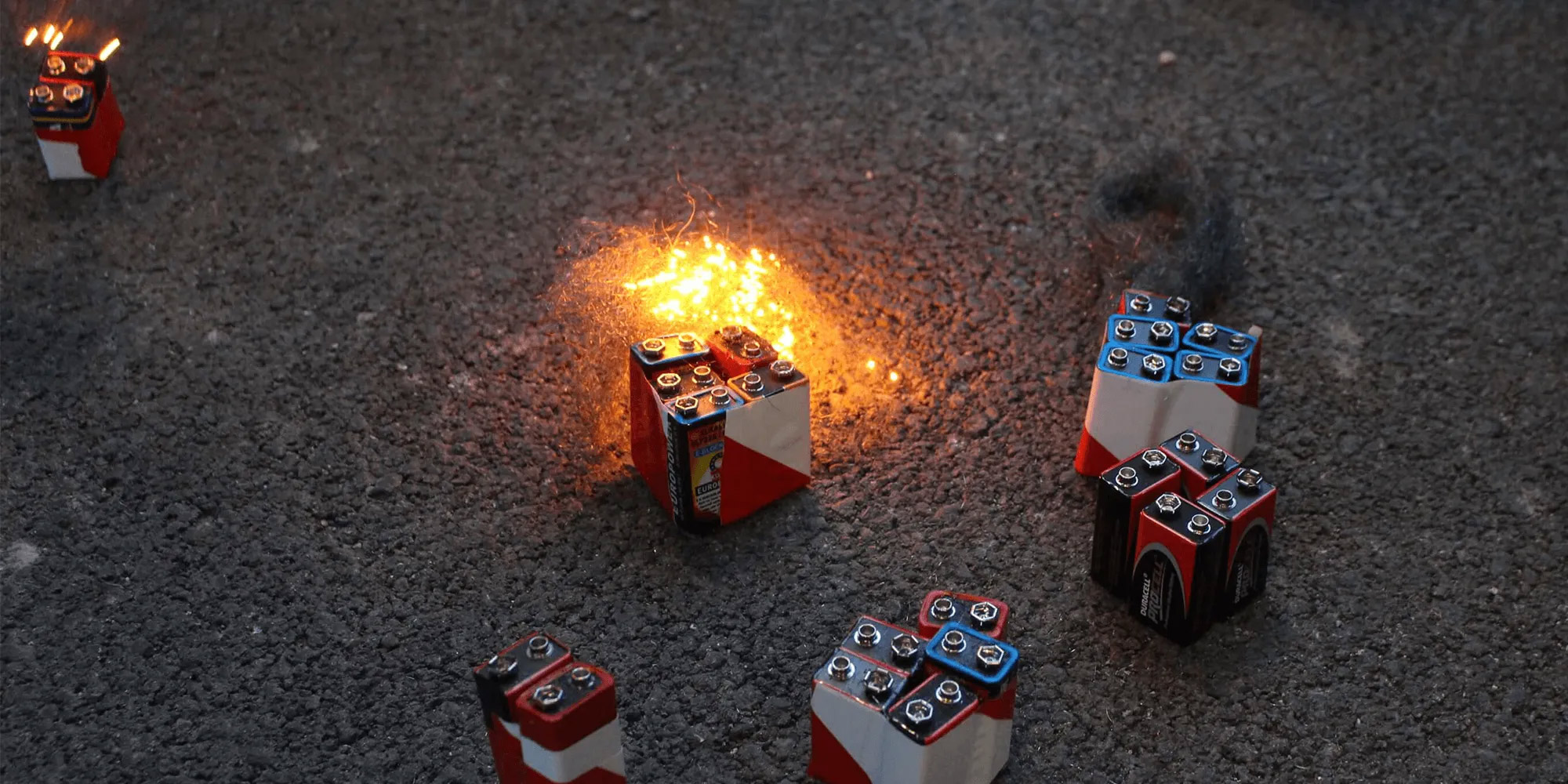
The workshop led by Vladan Joler on “Anatomy of an AI”, based on his art work with this title, immersed participants in dimensions, language, and classifications of infrastructure ground research and map creation. It explored the paradox of classification as both a form of violence and a foundation of scientific understanding. Participants pondered the limits of human understanding and how topology shapes various relationships. The workshop delved into mapping as a process of thinking and the inherent biases in perception and computing. Darsha Hannah Hewitt’s “Music Materiality and Media Archaeology” workshop marked a creative journey into sound and technology. She is an artist and a guest Professor, Media Art/Sound, Karlsruhe University of Art and Design. Starting with a pack of dead nine Volt batteries, old speakers taken from waste, and basic electronic components, students attached the used speakers to analog circuits they built themselves, generating square wave oscillators. They creatively manipulated these oscillators, creating synchronized soundscapes. The workshop emphasized repurposing technology, exploring the “waste of music.” Students also experimented with dead 9V batteries concluding chapter 1 with a “Dead Battery Disco”.
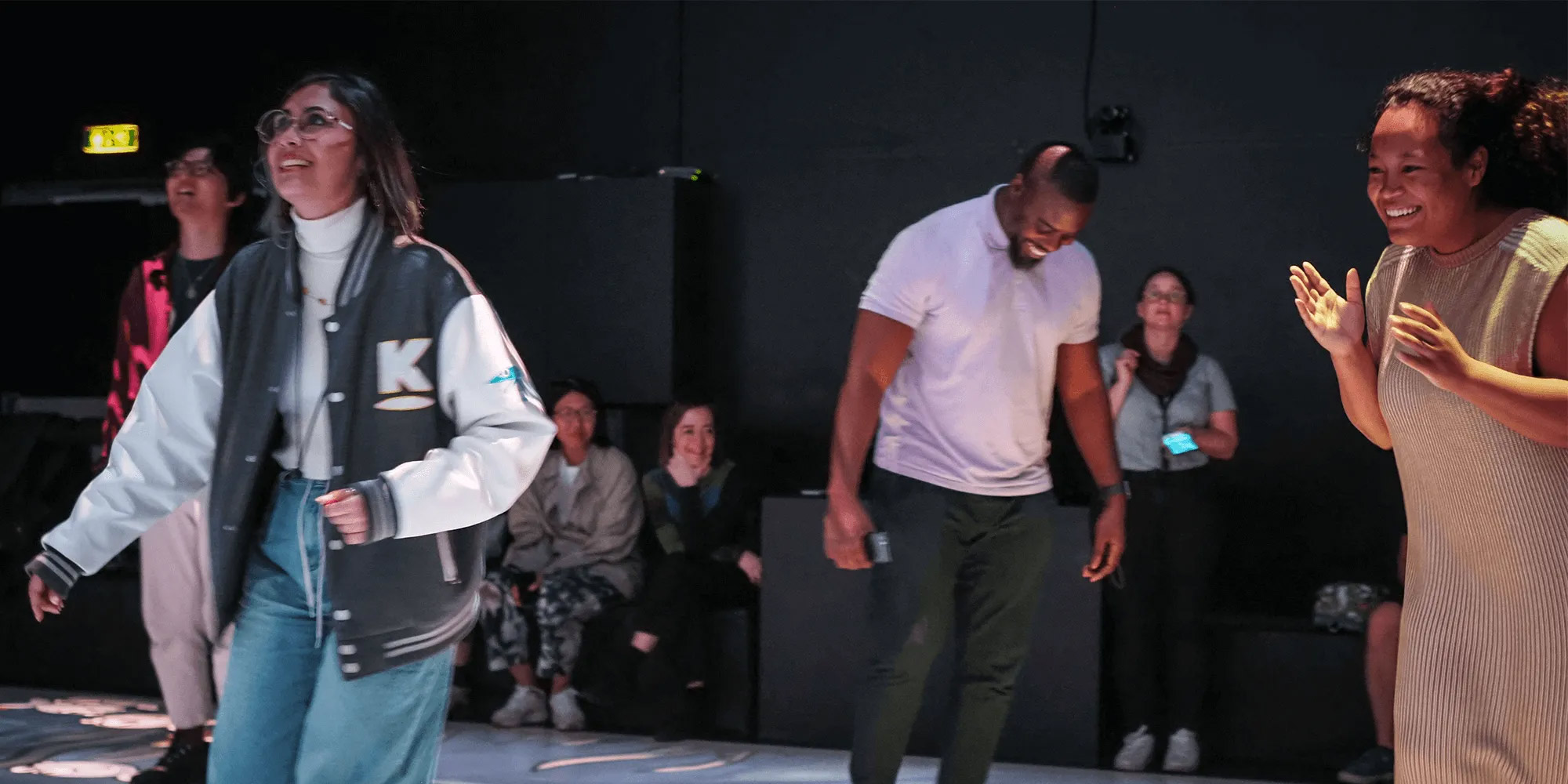
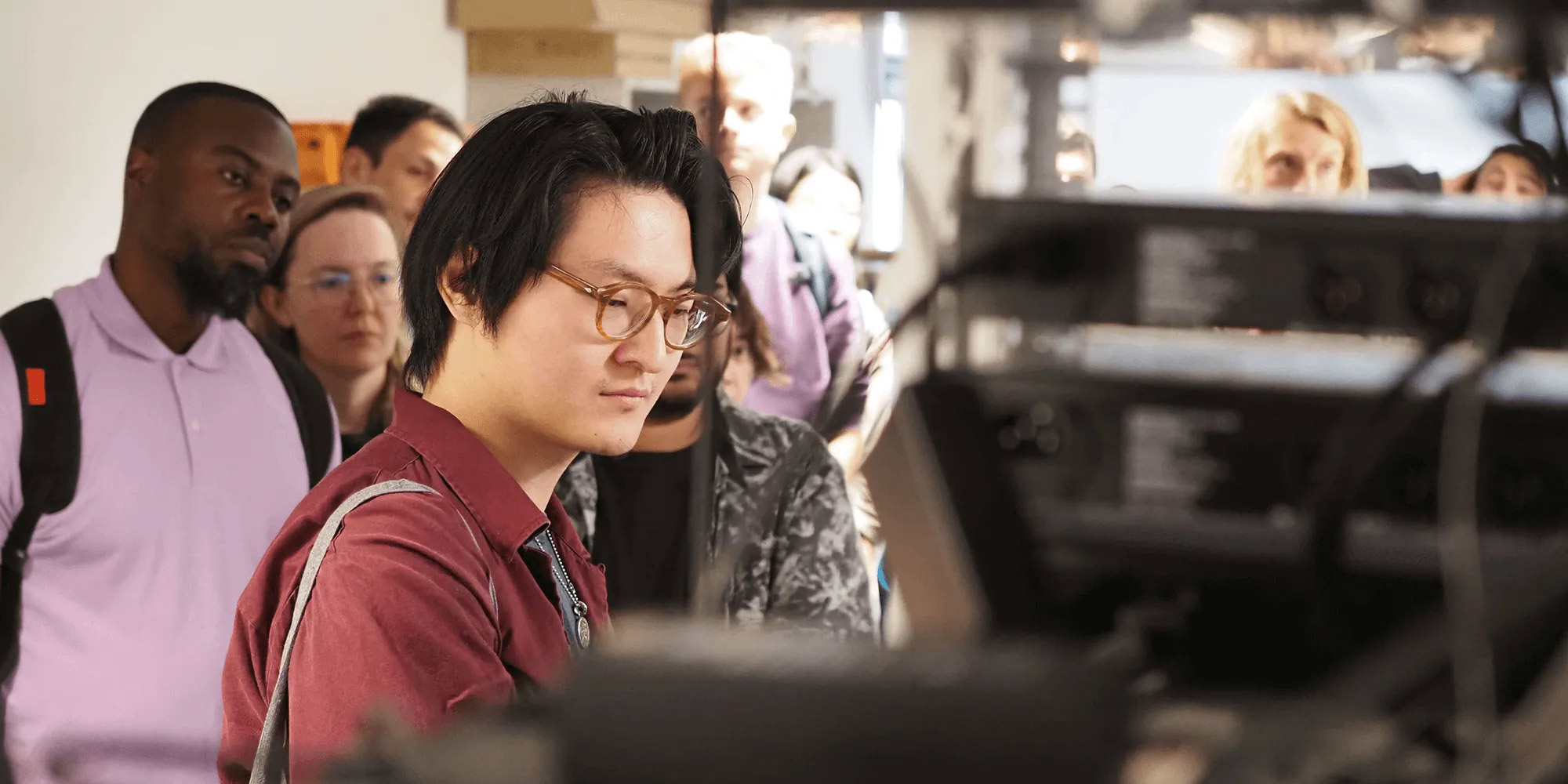

The first chapter of the FOUNDING LAB Fall Term covered a broad spectrum of topics, from infrastructure and technology to spatialization, mapping, and the creative reimagining of sound and discarded technology. The fellows, Gerhard Grimm, Darsha Hannah Hewitt, and Vladan Joler guided students in a diverse range of experiences, fostering creativity and critical thinking in the digital realm, setting the stage for an exciting journey to discover how the next chapters of the Fall Term will further shape their skills and perspectives. Fellows Arianna Salazar Miranda, a postdoctoral researcher at MIT’s Senseable City Lab and the University of Chicago’s Mansueto Institute, Roland van Dierendock, Principal Investigator of the Responsible Applied Artificial InTelligence (RAAIT) project at the Rotterdam University of Applied Sciences, and Golden Nica winner and Senior Research Fellow at Ca Foscari University Paolo Cirio will guide students through the process of data analysis using real data they collected in the city of Linz.
Chapter 2 of Fall Term follows from Oct. 8-11. For more information on FOUNDING LAB Fall Term, visit our website.